January 11 stands as one of history’s most eventful days, witnessing the rise and fall of empires, groundbreaking discoveries, and moments that shaped our modern world across centuries of human achievement.

Politics and Government Events on January 11
1923 – Occupation of the Ruhr: French and Belgian Forces Occupy German Industrial Region
French and Belgian troops occupied the Ruhr Valley to force Germany to fulfill its World War I reparation obligations. The occupation represented a dramatic escalation in post-war European tensions.
The industrial heart of Germany fell under foreign control, crippling the nation’s economic recovery. This aggressive action deepened German resentment and contributed to the political instability that would define the decade.
1946 – Enver Hoxha Declares People’s Republic of Albania
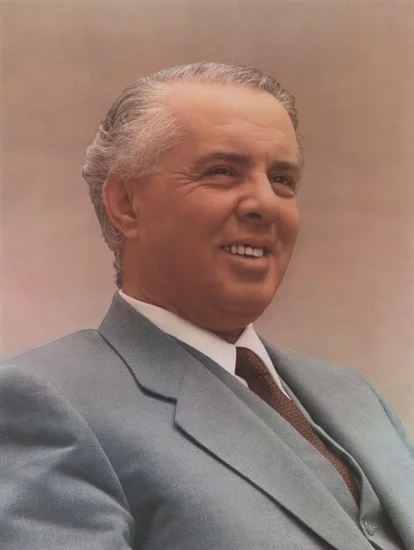
Albanian Communist Party leader Enver Hoxha proclaimed the establishment of the People’s Republic of Albania with himself as head of state. The declaration marked Albania’s transformation into a communist nation under Soviet influence.
Hoxha’s regime would become one of Europe’s most isolated and repressive governments. His authoritarian rule would persist for decades, fundamentally reshaping Albanian society and politics.
1972 – East Pakistan Becomes Bangladesh
The newly independent nation of East Pakistan officially adopted the name Bangladesh following its successful liberation war. This historic renaming symbolized the birth of a new nation and the end of Pakistani rule.
The name change represented the culmination of a bloody independence struggle that had claimed hundreds of thousands of lives. Bangladesh emerged as the world’s eighth most populous nation, beginning its journey toward establishing democratic institutions.
1995 – Irish Government Lifts Broadcasting Ban on IRA
The Irish Government announced the end of a 15-year broadcasting ban on the IRA and its political wing Sinn Féin. This landmark decision opened new channels for political dialogue during the Northern Ireland peace process.
The lifting of restrictions allowed formerly banned voices to participate in public discourse. This crucial step helped pave the way for the comprehensive peace negotiations that would follow.
2003 – Illinois Governor Commutes 167 Death Sentences
Governor George Ryan commuted the death sentences of 167 prisoners on Illinois’s death row, citing concerns about the Jon Burge scandal. This unprecedented mass commutation represented the largest single act of clemency in American history.
Ryan’s dramatic action highlighted systemic problems with capital punishment in Illinois. The governor’s decision sparked national debate about the death penalty and influenced criminal justice reform efforts across the country.
Military and Naval History on January 11
1917 – Kingsland Munitions Factory Explosion Through Sabotage
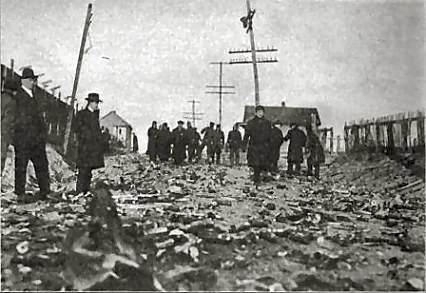
The Kingsland munitions factory in New Jersey exploded as a result of deliberate sabotage during World War I. The massive blast destroyed the facility and created a spectacular fireworks display that lasted hours.
German agents orchestrated the attack to disrupt American military supply lines to Allied forces. The explosion highlighted the vulnerability of American industrial facilities to enemy sabotage operations on home soil.
1942 – Japanese Forces Capture Kuala Lumpur
Japanese military forces captured Kuala Lumpur, the capital of the Federated Malay States, during their rapid advance through Southeast Asia. The fall of this strategic city marked another major victory in Japan’s southern expansion.
The capture demonstrated the effectiveness of Japanese blitzkrieg tactics in tropical warfare. British colonial defenses crumbled under the swift and coordinated assault, accelerating the collapse of Western power in the region.
1942 – Battle of Tarakan: Japanese Attack in Borneo
Japanese forces launched their assault on Tarakan in Borneo, Netherlands Indies, targeting the island’s valuable oil facilities. The attack represented a crucial component of Japan’s strategy to secure petroleum resources.
The battle highlighted the strategic importance of Southeast Asian oil fields in World War II. Japanese success in capturing these facilities would fuel their military machine throughout the Pacific theater.
1962 – Soviet Submarine B-37 Destroyed by Torpedo Fire
The Soviet submarine B-37 was destroyed when fire broke out in its torpedo compartment while docked at Polyarny naval base. The explosion killed several crew members and demonstrated the inherent dangers of nuclear submarine operations.
This incident occurred during the height of the Cold War, highlighting the risks faced by both superpowers in their naval arms race. The tragedy underscored the deadly consequences of handling powerful weapons in confined spaces.
Science and Discovery Milestones on January 11
1922 – Leonard Thompson Receives First Insulin Injection
Leonard Thompson became the first person to receive an insulin injection as treatment for diabetes at Toronto General Hospital. This groundbreaking medical procedure marked the beginning of effective diabetes treatment.
The 14-year-old patient’s condition improved dramatically, proving insulin’s life-saving potential. This historic injection launched a medical revolution that would save millions of lives worldwide and transform diabetes from a death sentence into a manageable condition.
1964 – Surgeon General Issues Landmark Smoking Report
Surgeon General Luther Terry published “Smoking and Health,” the first major government report linking smoking to serious health hazards. The comprehensive study provided definitive evidence of tobacco’s deadly effects on human health.
The report’s release sparked nationwide anti-smoking campaigns and fundamentally changed public perception of cigarettes. This scientific milestone launched decades of tobacco control efforts that would save countless lives through reduced smoking rates.
2020 – First COVID-19 Death Recorded in Wuhan
Municipal health officials in Wuhan announced the first recorded death from COVID-19, marking a tragic milestone in the emerging pandemic. The announcement signaled the virus’s deadly potential to global health authorities.
This somber announcement would prove to be the beginning of a worldwide health crisis. The death highlighted the urgent need for international cooperation in tracking and containing the rapidly spreading virus.
Cultural and Arts Events on January 11
1927 – Louis B. Mayer Announces Creation of Academy of Motion Picture Arts and Sciences
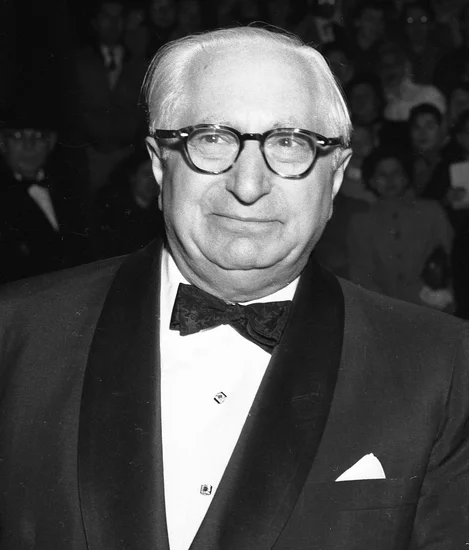
MGM studio head Louis B. Mayer announced the creation of the Academy of Motion Picture Arts and Sciences at a Los Angeles banquet. This founding moment established the organization that would become synonymous with Hollywood excellence.
The Academy’s formation brought together industry leaders to promote artistic progress and cultural advancement in filmmaking. This historic announcement laid the foundation for the prestigious Academy Awards ceremony that continues to celebrate cinematic achievement.
1949 – First Networked Television Broadcast Connects East Coast and Midwest
KDKA-TV in Pittsburgh went on the air, creating the first “networked” television broadcast linking the East Coast and Midwest. This technological achievement marked a pivotal moment in American broadcasting history.
The successful connection demonstrated television’s potential to unite the nation through shared programming. This breakthrough paved the way for coast-to-coast broadcasting that would transform American culture and communication.
1957 – African Convention Founded in Dakar
The African Convention was established in Dakar, Senegal, bringing together leaders from across the continent to discuss political and cultural unity. This gathering represented an important step toward African independence and cooperation.
The convention fostered dialogue between emerging African nations and established a framework for future collaboration. This cultural and political milestone helped shape the pan-African movement that would influence decolonization efforts throughout the continent.
Religious and Social Events on January 11
1943 – Anarchist Carlo Tresca Assassinated in New York
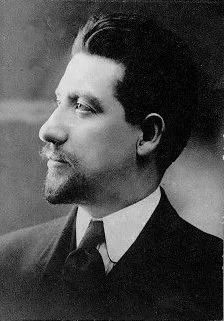
Italian-American anarchist Carlo Tresca was assassinated in New York City, shocking the immigrant community and labor movement. The prominent activist had been a vocal critic of both fascism and communism.
Tresca’s murder eliminated a powerful voice for workers’ rights and anti-fascist resistance. His death highlighted the dangerous political tensions within immigrant communities during World War II and the risks faced by outspoken political activists.
1912 – Lawrence Textile Strike Begins
Immigrant textile workers in Lawrence, Massachusetts, launched a major strike when wages were reduced following mandated work week shortening. The “Bread and Roses” strike became a symbol of labor solidarity and immigrant rights.
The strike united workers from dozens of different ethnic backgrounds against mill owners’ exploitation. This pivotal labor action demonstrated the power of organized immigrant workers and influenced labor organizing strategies nationwide.
1983 – United Airlines Flight 2885 Crashes After Detroit Takeoff

United Airlines Flight 2885 crashed shortly after takeoff from Detroit Metropolitan Airport, killing three people aboard. The tragic accident highlighted ongoing aviation safety concerns in commercial air travel.
The crash prompted renewed examination of takeoff procedures and aircraft safety systems. This somber event contributed to the continuous improvement of aviation safety protocols that protect millions of passengers annually.
Business and Economic Events on January 11
1943 – China Signs New Equal Treaties with Britain and America
The Republic of China agreed to the Sino-British New Equal Treaty and the Sino-American New Equal Treaty, formally ending the era of unequal treaties. These agreements restored Chinese sovereignty and eliminated foreign privileges on Chinese soil.
The treaties marked China’s emergence as an equal partner in international relations during World War II. This diplomatic breakthrough represented a crucial step toward China’s full participation in the post-war international order.
1961 – Throgs Neck Bridge Opens in New York

The Throgs Neck Bridge connecting the Bronx and Queens opened to traffic, providing a vital transportation link across the East River. This engineering achievement improved regional connectivity and economic development.
The bridge’s completion enhanced New York’s transportation infrastructure and facilitated commerce between the boroughs. This major public works project demonstrated the city’s commitment to modernizing its transportation network.
1986 – Gateway Bridge Opens in Brisbane

The Gateway Bridge in Brisbane, Queensland, was officially opened, providing a crucial crossing over the Brisbane River. This infrastructure milestone improved transportation efficiency and supported regional economic growth.
The bridge’s completion enhanced connectivity between Brisbane’s northern and southern suburbs. This engineering achievement facilitated increased trade and development throughout the metropolitan area.
Transportation and Infrastructure on January 11
1935 – Amelia Earhart Completes Historic Hawaii-California Solo Flight
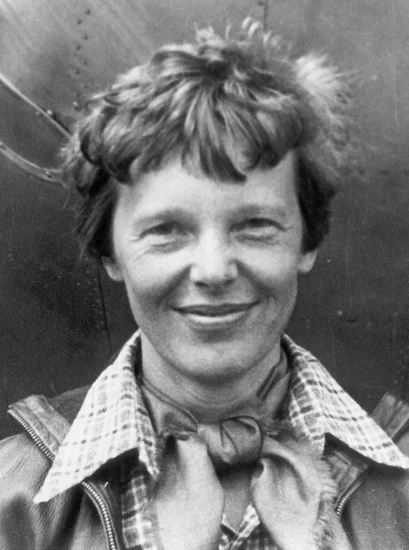
Amelia Earhart became the first person to fly solo from Hawaii to California, completing the dangerous 2,400-mile journey across the Pacific Ocean. Her successful flight demonstrated the feasibility of transpacific aviation.
The pioneering aviator’s achievement opened new possibilities for commercial aviation across the Pacific. Earhart’s courage and skill inspired a generation of pilots and advanced the development of long-distance air travel.
1914 – Arctic Expedition Ship Karluk Crushed by Ice
The Karluk, flagship of the Canadian Arctic Expedition, sank after being crushed by pack ice in the Arctic Ocean. The disaster stranded crew members on the ice, beginning a harrowing survival story.
The ship’s destruction highlighted the extreme dangers of Arctic exploration and the unpredictable nature of ice conditions. This maritime disaster led to improved safety protocols for polar expeditions and better understanding of Arctic navigation hazards.
1966 – Tbilisi Metro System Opens
The Tbilisi Metro began operations in the Georgian capital, providing modern public transportation for the growing city. This significant infrastructure development improved urban mobility and supported economic growth.
The metro system’s launch marked a major advancement in Georgian public transportation. This modern transit solution reduced traffic congestion and provided efficient movement throughout the metropolitan area.
Sports and Recreation on January 11
1972 – Major League Baseball Adopts Designated Hitter Rule
Major League Baseball owners voted to approve the American League’s adoption of the designated hitter position, fundamentally changing the game’s strategy. This controversial rule eliminated the need for pitchers to bat in American League games.
The designated hitter rule created a permanent strategic difference between the American and National Leagues. This historic decision sparked decades of debate about tradition versus innovation in America’s pastime.
1996 – Space Shuttle Endeavour Launches on Mission STS-72
Space Shuttle Endeavour launched from Kennedy Space Center on mission STS-72, marking the program’s 74th mission and Endeavour’s 10th flight. The crew conducted important satellite deployment and retrieval operations.
The successful mission demonstrated NASA’s continued advancement in space technology and international cooperation. This spaceflight contributed valuable scientific data and maintained America’s leadership in space exploration.
1908 – Grand Canyon Designated National Monument

President Theodore Roosevelt designated the Grand Canyon as a National Monument, protecting this natural wonder for future generations. This conservation action preserved one of America’s most spectacular geological formations.
The monument’s creation represented a significant victory for the emerging conservation movement. Roosevelt’s decision ensured that this magnificent landscape would remain protected from commercial exploitation and accessible to all Americans.
Notable Births on January 11
1906 – Albert Hofmann, Swiss Chemist and LSD Discoverer
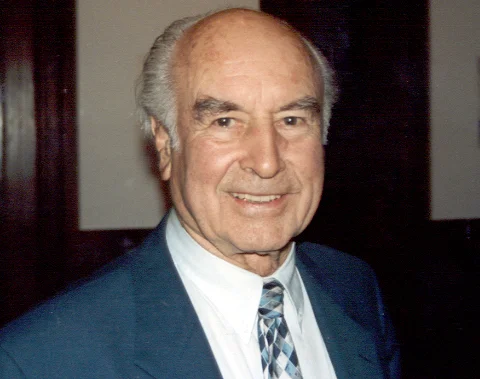
Albert Hofmann was born in Baden, Switzerland, beginning a life that would revolutionize neuroscience and consciousness research. His academic brilliance would lead him to groundbreaking discoveries in pharmaceutical chemistry.
Hofmann would later synthesize and accidentally discover the psychoactive effects of LSD in 1943. His work profoundly influenced psychiatric research and sparked both scientific interest and cultural transformation in the understanding of human consciousness.
1940 – Jean Chrétien, Canadian Prime Minister
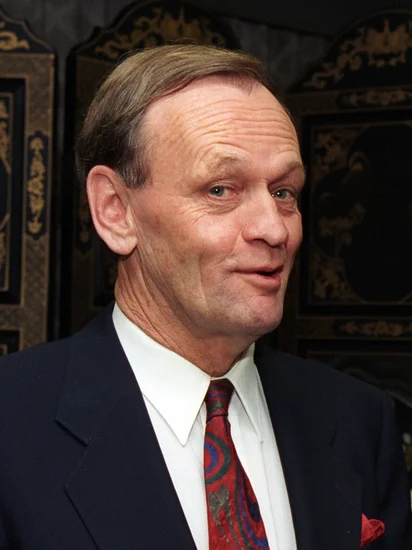
Jean Chrétien entered the world in Shawinigan, Quebec, destined to become one of Canada’s most influential political leaders. His early life in a working-class francophone family shaped his populist political approach.
Chrétien would serve as Canada’s 20th Prime Minister from 1993 to 2003, leading the Liberal Party to three consecutive majority governments. His tenure marked a period of economic prosperity and national unity during challenging times.
1946 – Naomi Judd, American Country Music Star

Naomi Judd was born in Ashland, Kentucky, beginning a journey that would make her a country music legend. Her powerful voice and compelling personal story would captivate audiences worldwide.
As half of The Judds duo with daughter Wynonna, she achieved unprecedented success in country music. Her contributions to the genre earned multiple Grammy Awards and influenced countless artists in contemporary country music.
1971 – Mary J. Blige, Hip-Hop and R&B Icon

Mary J. Blige was born in the Bronx, New York, destined to become the “Queen of Hip-Hop Soul.” Her childhood experiences in housing projects would later influence her authentic musical expression.
Blige revolutionized R&B by blending hip-hop beats with soul vocals, creating a new genre that influenced countless artists. Her raw emotional delivery and personal storytelling established her as one of music’s most powerful voices.
1987 – Jamie Vardy, English Football Sensation

Jamie Vardy was born in Sheffield, England, beginning an unlikely journey from non-league football to Premier League stardom. His late entry into professional football defied conventional career paths.
Vardy’s remarkable rise from semi-professional football to England international exemplifies determination and perseverance. His goal-scoring exploits helped Leicester City achieve their miraculous 2016 Premier League title triumph.
1992 – Dani Carvajal, Spanish Football Champion

Dani Carvajal was born in Leganés, Spain, entering a football-obsessed culture that would shape his athletic destiny. His youth development in Real Madrid’s academy system prepared him for elite competition.
Carvajal would become one of the world’s finest right-backs, winning multiple Champions League titles with Real Madrid. His attacking prowess and defensive reliability made him essential to both club and national team success.
Notable Deaths on January 11
1928 – Thomas Hardy, English Literary Giant
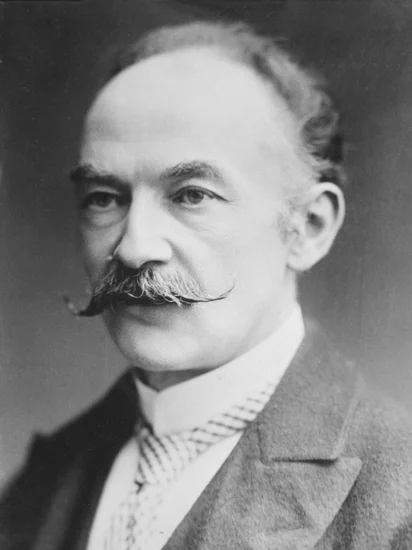
Thomas Hardy passed away at his home in Dorset, England, ending one of literature’s most distinguished careers. The renowned novelist and poet had chronicled rural English life with unparalleled depth and sensitivity.
Hardy’s novels, including “Tess of the d’Urbervilles” and “The Mayor of Casterbridge,” captured the social transformations of Victorian England. His works continue to influence writers and readers worldwide, cementing his place among literature’s greatest voices.
1966 – Lal Bahadur Shastri, Indian Prime Minister
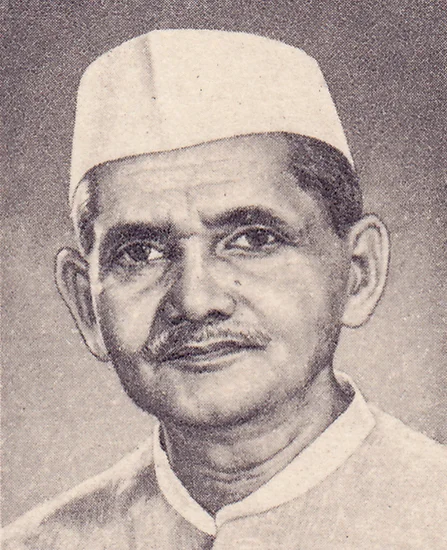
Lal Bahadur Shastri died unexpectedly in Tashkent, Uzbekistan, shortly after signing a peace agreement with Pakistan. India’s second Prime Minister had led the nation through the 1965 Indo-Pakistani War.
Shastri’s sudden death at age 61 shocked the nation and raised questions about the circumstances surrounding his passing. His leadership during wartime and commitment to peaceful resolution earned him lasting respect in Indian political history.
1966 – Alberto Giacometti, Swiss Sculptor
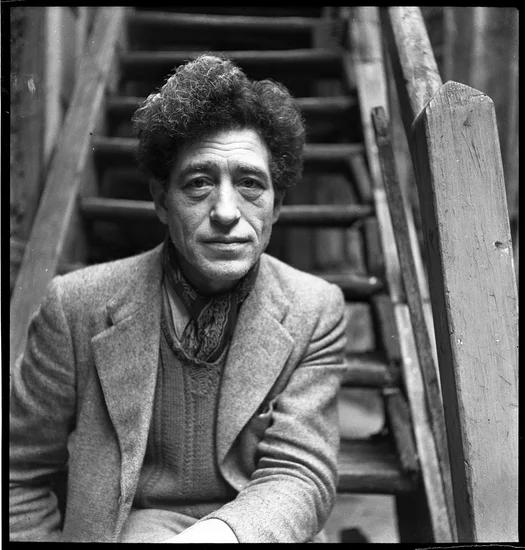
Alberto Giacometti died in Chur, Switzerland, leaving behind a revolutionary body of sculptural work. His distinctive elongated figures had redefined modern sculpture and influenced generations of artists.
Giacometti’s haunting bronze sculptures captured the human condition with unprecedented emotional intensity. His artistic legacy continues to inspire contemporary artists and commands record prices in international art markets.
2008 – Edmund Hillary, Mount Everest Conqueror
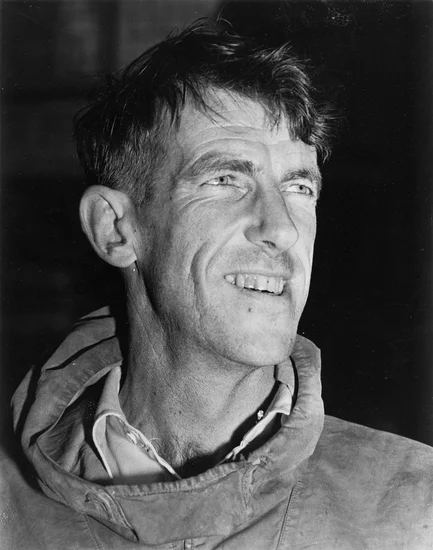
Sir Edmund Hillary died in Auckland, New Zealand, at age 88, ending the life of one of history’s greatest explorers. The mountaineer had achieved immortality as the first person to reach Mount Everest’s summit.
Hillary’s 1953 Everest conquest alongside Tenzing Norgay captured global imagination and inspired countless adventurers. His later humanitarian work in Nepal demonstrated his commitment to the mountain communities that had enabled his historic achievement.
2013 – Aaron Swartz, Internet Pioneer and Activist

Aaron Swartz died by suicide in New York City at age 26, shocking the technology community and digital rights advocates. The programming prodigy had co-founded Reddit and championed internet freedom.
Swartz’s death highlighted the pressures faced by digital activists and the consequences of prosecutorial overreach. His legacy continues to inspire movements for open access to information and digital civil liberties.
Holidays and Observances on January 11
Republic Day in Albania
Albania celebrates Republic Day on January 11th, commemorating the establishment of the People’s Republic of Albania in 1946. This national holiday honors the country’s republican form of government and democratic aspirations.
The observance includes official ceremonies and patriotic displays throughout the country. Albanian citizens reflect on their nation’s journey toward independence and democratic governance during this important national celebration.
Kagami Biraki in Japan
Japan observes Kagami Biraki, the traditional ceremony of breaking open decorative New Year rice cakes called kagami mochi. This ancient ritual symbolizes the breaking of barriers and the beginning of new endeavors.
Families and martial arts schools participate in this ceremony, sharing the blessed rice cakes to ensure good fortune. The tradition connects modern Japanese society with centuries-old customs that honor renewal and prosperity.
National Human Trafficking Awareness Day in the United States
The United States observes National Human Trafficking Awareness Day to educate the public about modern slavery and exploitation. This important awareness campaign highlights the ongoing struggle against human trafficking worldwide.
Government agencies and advocacy organizations use this day to promote prevention efforts and support survivors. The observance emphasizes America’s commitment to combating trafficking and protecting vulnerable populations from exploitation.
